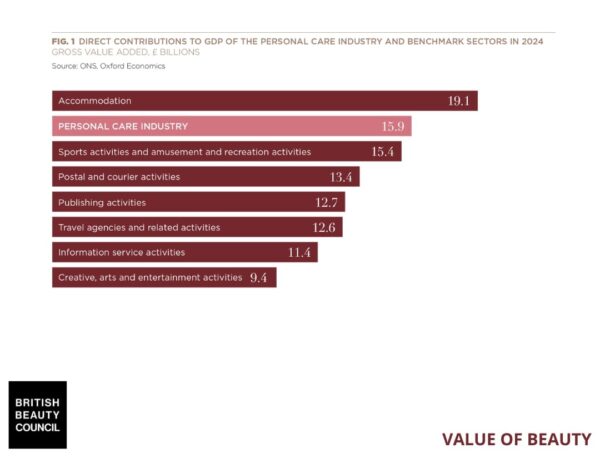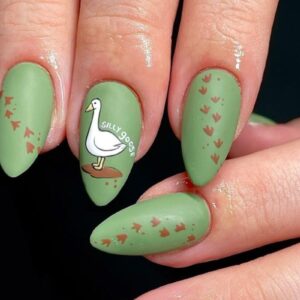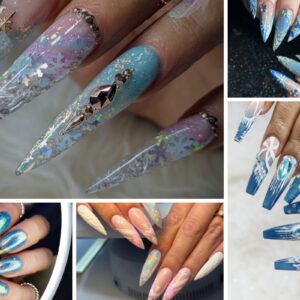
UK beauty industry grew four times faster than overall economy in 2024
By Rebecca Hitchon | 01 July 2025 | News

The British Beauty Council has published its Value of Beauty report 2025, revealing a significant increase in the personal care sector’s GDP contribution and workforce.
The annual report, compiled by Oxford Economics and commissioned by the British Beauty Council, is designed to highlight the economic impact of the UK personal care industry, and found that its GDP (gross domestic product) contribution reached £30.4 billion in 2024, making up 1.1% of the country’s GDP. This is a 9% increase year on year, or 5% when adjusting for inflation: a growth four times faster than the economy’s growth rate.
2024 saw an 8% increase year on year in consumer spending across the personal care industry, reaching £32.4 billion. Professional services make up £10.1bn of this, and personal care goods account for £22.3bn.
This is a 15% increase year on year for professional services, or 10% when adjusting for inflation, and a 5% increase for personal care goods, or 3% in line with inflation.
In 2025, it is predicted that the UK personal care industry will support a total GDP contribution of £31.5 billion: up 3%, due to an expected slowdown in the growth of household spending on personal care products and services.

Last year, the UK beauty industry accounted for 697,000 jobs, directly employing 496,000 workers: up 11% year on year and higher than pre-pandemic.
It is estimated that the majority of this employment increase (36,000 out of 48,000 new jobs) took place in the personal care services sub-sector, which employed 266,000 workers: a 16% increase in comparison to 2023. However, the Value of Beauty report predicts a decrease in overall industry jobs by 2% to 681,000 this year.
In terms of tax contributions, the personal care industry supported £8.6 billion in tax revenue to the UK treasury in 2024. The report estimates that the industry will support £9.4 billion in total tax contributions in 2025, largely driven by the rise in minimum wage and national insurance contributions.

Credit: linkedin.com
Vasilis Douzenis, associate director of Oxford Economics’ Economic Impact department, comments: “The UK beauty and personal care sector saw stable growth in 2024, supported by strong consumer spending. The industry grew significantly faster than the overall UK economy and is supporting a growing share of the country’s GDP, jobs and tax revenue.
“Beauty now directly contributes a larger share of GDP than the sports, amusement and recreation sectors. It also employs more jobs than the publishing and broadcasting industry.”
The Value of Beauty report found that UK beauty and personal care manufacturers totalled £4.3 billion and accounted for 1.3% of UK goods exports in 2024: a significant decline since export highs in the 2010s. From the end of 2020, annual exports of personal care goods to the EU single market have fallen by 5.9% and 4.4% to the rest of the world.
The EU continues to have strong control over beauty’s trade. While 47% of non-beauty goods are exported from the UK to the EU single market, 70% of beauty and personal care exports are to the EU.
 Millie Kendall OBE, CEO of the British Beauty Council, notes: “Beauty’s drop in exports, and top exporting locations, doesn’t come as a surprise given the repercussions of not only Brexit, but also the fluctuation in trade red tape globally.
Millie Kendall OBE, CEO of the British Beauty Council, notes: “Beauty’s drop in exports, and top exporting locations, doesn’t come as a surprise given the repercussions of not only Brexit, but also the fluctuation in trade red tape globally.
“With 70% of beauty’s exports going to the EU, it is markedly important that policymakers mitigate trading challenges to the rest of the world to aid our global growth. That said, there is a clear appetite from brands to focus on their home market, building our reputation in the UK.”
Read the full report by downloading it here.

Read the latest issue









